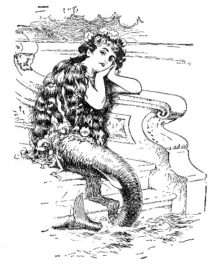
As the earlier matrilineal customs of old Russia dwindled and the tsar’s masculine model of governance superseded them, the status of women shifted and worsened. When a voice is unjustly silenced, it will seek an alternative outlet. Much of folklore and folksong fills this need: righting a wrong, demanding justice, telling in metaphor a truth that may not otherwise be spoken, seeking—as water seeks—an ultimate balance. The helpless anger of women denied their power becomes an undercurrent that rises to the surface of the culture through their stories.
The history and folklore of the women of water–nixies, rusalki, mermaids, sirens, six-thousand-year-old Sumerian goddess Nammu, and more–is as deep and rich with life as the sea itself. “The Rusalki” by Jane L. Mickelson, for Parabola Magazine, dares to plumb those depths. I urge you to wade in, especially if the first thing you think of when you hear the word mermaid is Disney’s Ariel.
We humans begin life in water and are washed into this world on an amniotic wave. Little wonder, then, that water enchants us and is inextricably linked to the miracle of fertility and birth. Moving or still, it sustains all life yet also contains in its very nature the ability to extinguish the breath of life as easily as it can extinguish a flame. Perhaps it is this dual nature that gives elemental beings like the rusalki such a seemingly unresolvable balance of opposite powers: to give, but also to take away, life.

